One of our favorite things to do when in a new city is to find an events calendar and see what’s on for the week. Munich, in the summertime, is full of festivals and concerts. With its rich history of renowned musical greats, it seems appropriate to be taking in many of these musical happenings. Catching a concert here and there not only awakens our ears to beautiful sounds, it also brings us to different parts of the city using the public transportation and sitting amongst the Germans enjoying a night out on the town.
My search for festive events here has been more difficult than usual. In comparison to a Latin based language, German is absolutely impossible for me to decipher. Typically I can turn to the calendar section in a local paper (like in Italy or Spain) and figure out what an event might consist of. Here in Munich, I gather many brochures, peruse all the posters in the subway, and see hundreds of listings for all kinds of things that look interesting to attend. However, the location of the events is impossible to decipher, as well as the price and the quality. I feel frustrated and as lost as a young child who is unable to read as I study the words. Fortunately, I have now learned some of the more recognizable words, such as chor (choir), orgel (organ), klassik (classical), symphoniker (symphony), kirchemusik (church music), and they have directed us to try out a few of these cultural offerings.
This weekend, our Friday evening turned out to be very un-touristy and authentically German. First stop: the Hackeurhaus Beer Hall. The history of this brewery dates back to 1738, with its charming antique decorations making this apparent. Travis was not alone in ordering an excellent traditional German meal- schweinsbraten, knödeln (roasted pork, potato dumplings) and a sauerkraut salad. As with the other beer halls and gardens we have visited so far, we watch in awe at the Germans who can easily drink more than a full liter of beer, sometimes even before their food arrives. Even more amazing are those who don’t eat at all while they drink, yet they can keep going back for more without showing any signs of drunkenness. The “beer culture” is indeed huge here; it is a way of life. Stopping by a beer hall or garden to buy a 6-euro liter appears to be the norm just as much as a $4 cup of Starbucks coffee might be for some Americans. That said, it’s been a kick for Travis and I to check out some of the famous, as well as the off-the-beaten track places to experience the Munich culture at it’s finest. It’s even more interesting to imagine what Oktoberfest might be like, when thousands of liters of beer are poured each day.
So, with both of us being big fans of choral church music, we headed to St. Korvinian Church south of the city center for a “Chornacht.” Six choirs from surrounding churches were featured in the program, all putting forth their best efforts to share their recent repertoires. We appreciated the variety of music, but also couldn’t help but critique a few of the performances. Our favorite choir was the one that had to add six chairs to the stage to seat their more “mature-voiced” soprano members who might have fallen off the bleachers if not for a little extra support. Or, there was the choir with the two tenors who plunged ahead with the text, not knowing there was a few bars of instrumental first. I hope they enjoyed their brief solo performance. The most interesting songs to us were those that were in English. We wondered if gospel songs were meant to be performed with thick German-accented English?
I guess we learned our lesson in attending a “free” concert in this city. Last week we paid 10 euros for another choral festival, and the difference in quality was remarkable. Nonetheless, we had no regrets in choosing this sweet, homespun outing. Sitting in this sanctuary with the 100% German audience, we couldn’t help but make a few observations. First, we were probably the youngest in attendance. Second, everyone around us looked as though they could have been our relatives. (I could have easily been sitting in one of the Dutch Christian Reformed Churches in Chino or another town, waiting for the Christian school choir to perform.) For the first time this year, Travis and I actually look like everyone else. Our physical features and tall builds help us to smoothly blend in, rather than starkly stand out as we have in most countries along our journeys. The Germans think we’re one of them. We’ve noticed this because every time we go somewhere we’re talked to in German, as though we’ll be able to respond back. In restaurants when there are both English and German menus, we’re handed the German ones! I suppose it’s a compliment to us to be treated so equally; the only hard part is when we unveil our true American identities, we can’t participate in the German exchanges. That’s when the smile and a nod comes in handy.
Returning home on the subway that evening, the train was packed with a variety of personalities. About a ¼ of the people were groups of teenagers boisterously gallivanting with their open beer bottles and alternative clothing. Another ¼ were young to middle age couples in Bavarian dress, lederhosen and all. Surprisingly, this traditional dress does exist here and is worn openly and proudly. Can you imagine a 20-year old man wearing brown leather embroidered shorts, suspenders and a hat with a feather in it on the subway? We’ve gathered that it is typical to dress traditionally when attending special events, going to a party, and of course for many it’s their work uniform. The other half of people on the subway were a somewhat diverse mix of clean-cut, nice looking folk who appear hospitable yet rather distant and focused.
To look at this Friday evening of culture as a whole, it’s fascinating for Travis and I to think back upon the many different musical events we’ve attended this year and ponder the vast contrasts. Regardless of the country, language, setting or style, it is true when Henry Wadsworth Longfellow quotes, “Music is the universal language of mankind.”
A few unforgettable musical memories of the year:
Vivaldi’s “Gloria” in Seville, Spain- We ran into several choir members in a tapas bar that lead us to a hidden gem of a church to hear a splendid rendition of this beloved piece.
Organ concert in Notre Dam Cathedral, Paris- This weekly, free afternoon concert resounded beautifully amidst the throng of tourists roaming about.
A Rezo in Granada, Nicaragua- An evening dedicated to honor the Virgin Mary, we received our presents of sugary candy and bags of fruit while listening to the devout voices of the neighborhood worshipers.
“Feelings” radio station in Matagalpa- Our background music for all meals spent in our outdoor kitchen in Nica, we sang along with every cheesy 80’s and 90’s song imaginable.
Procession in Velletri, Italy- Another night devoted to the Virgin, thousands of townspeople marched through the hilly city carrying candles larger than a small child, while singing a version of “Ave Maria” repeatedly for hours.
Anna Karenina in Vienna- Our most elegant and classy evening out of the year, the production was so great it really didn’t matter that we were herded like sheep into our 4-euro standing-room only seats.
Monday, July 13, 2009
Subscribe to:
Post Comments (Atom)
About Us
Spain

Excursion to Toledo

The Toldeo Cathedral

....supposedly one of the most beautiful in all of Europe

The city (the former capital of Spain) is on top of a hill, surrounded by a stone wall


the narrow city streets were an adventure to walk on

lovely city streets...

The top of a mosque
The "Bullet Train"

This high speed train runs over 200 miles an hour! We traveled a distance of 100 miles in 30 minutes flat. Amazing.

Excited for our first trip outside of Madrid

Another typical plaza in the center of the city. As usual, late in the day all the folks gather together and sit and catch up on their days. Very pleasant!

I loved watching this sweet elderly man pacing the square. Looks like he might have benefited from drinking more milk though in his younger days!

Our first "Menu of the Dia." This is my 1st course of their famous gaspacho- served more pureed and smooth here than how we make it in CA...

a view from on top of the city


love the flowers and shadows
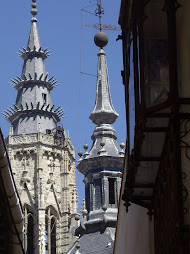
The Packing Nightmare!

We actually lived amongst this for several days!
Down to the last load...

Goodbye to our apartment... now we're homeless!




































































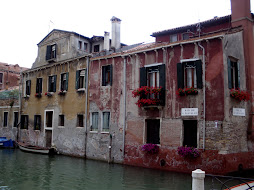













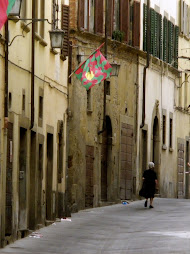




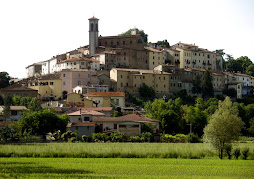



































































































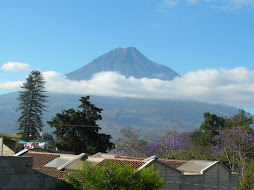









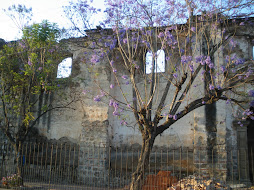


















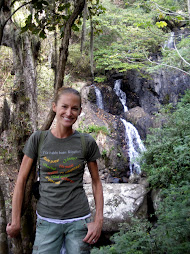

















































































































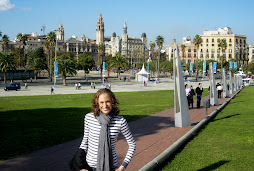





















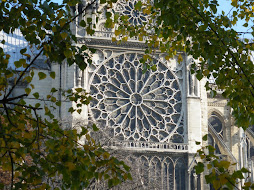





































































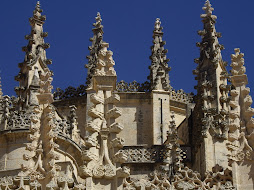









































No comments:
Post a Comment